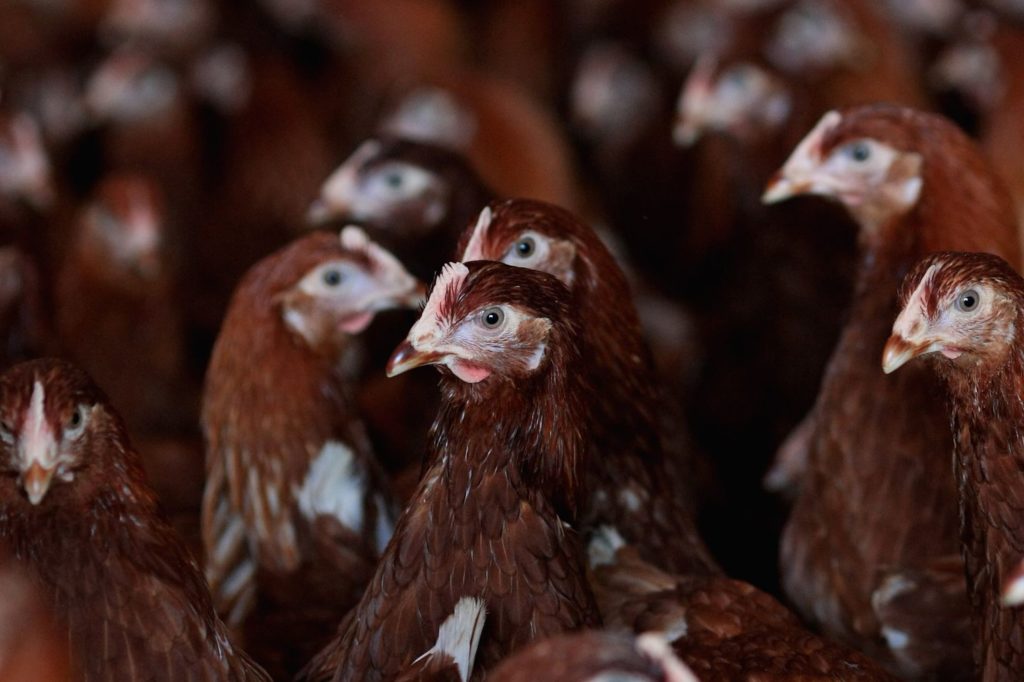Chickens on a farm in Stradbroke, England. Jamie McDonald/Getty Images
This is the latest in a long string of successful corporate campaigns.
In 2013, the Marriott International hotel chain promised to move away from some particularly cruel factory-farming practices, instead requiring cage-free eggs and that pregnant pigs not be confined to gestation cages. But they missed their 2015 target without much comment.
Earlier this month, animal activists from the Humane League and the Open Wing Alliance started pressuring the company to live up to its promise through silent protests and online publicity. Yesterday, protesters outside Marriott’s international headquarters in Bethesda, Maryland, got good news: The company announced that it was recommitting to its plan to transition to fully cage-free eggs.
“Marriott International is committed to sourcing 100% of our eggs (shell, liquid, and egg products) from cage-free sources throughout our global operations for all owned, managed and franchised properties by the end of 2025,” the company wrote in a press release.
The protest turned into something of a celebration — Marriott sent the protesters vegan sandwiches to mark the occasion. Marriott promised to publish the goals in multiple languages next year and to issue annual updates on their progress so it can be accountable for the results.
Animal activism has changed in the last few years. People working for better conditions for animals used to dedicate most of their energy to convincing people to go vegan. But that message has narrow appeal — alternatives to animal products aren’t yet good enough for most people to consider going vegan.
Recently, many activists have shifted toward working with corporations to change their practices. They’ve had incredible success.
Major companies like Starbucks and General Mills, and now Marriott, have signed on to agreements to source eggs from cage-free farms. The Humane League reports that 100 percent of “corporate campaigns” they’ve run have resulted in real, concrete changes — usually quite fast. Companies, it turns out, are quite open to transitioning to better practices, and many of them have already committed to do so and just need the nudge to follow through on their commitments.
The key insight here is that almost all animal product sales pass through major international corporations at some stage. Even if they make it to consumers, the consumers typically buy them off shelves at a large grocery chain. And there’s demand from consumers for more humane products. Many companies have made commitments to humane practices but have been slow to actually live up to them. That means that animal activists can make a huge difference combating the cruelest farming practices just by demanding these companies do what they’ve already said they mean to do.
Source: Kelsey Piper Vox.com







